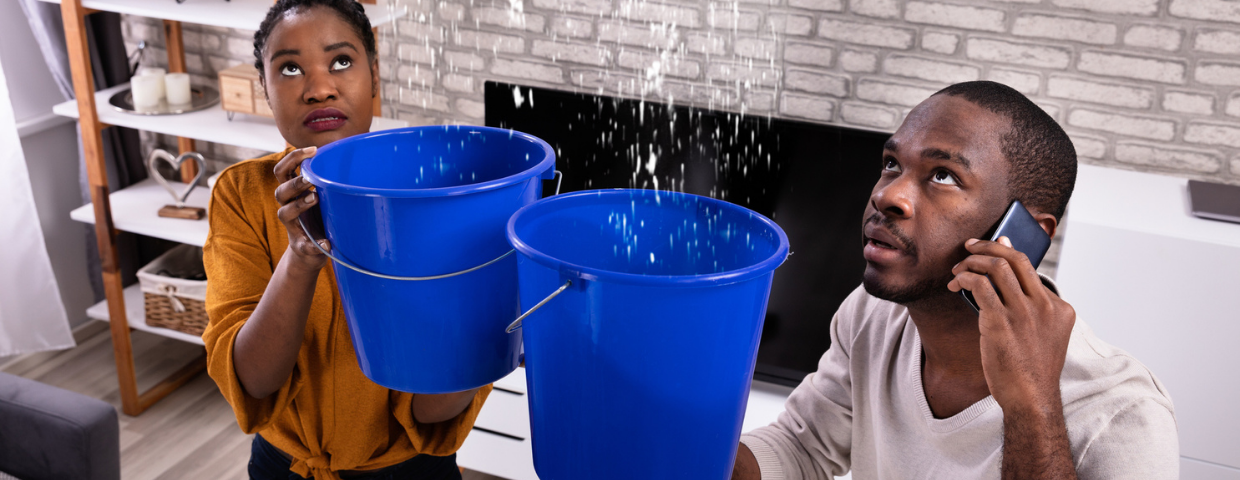Even if you’ve done all you can to prevent water damage in your home, there’s still a possibility it could occur. During a water damage emergency, it’s important to have a plan in place and be proactive to make sure things don’t go from bad to worse.
How to Handle Water Damage In Your Home
If your home is in danger of flooding, evacuate the area until it is safe to return. In all other situations, as soon as you notice any water damage, it’s time to act quickly to prevent further damage. Water reaching an electrical source spells danger, so be sure to switch off your circuit breakers to cut the electricity. If your circuit breakers are in the same room as the source of the water damage, it’s best to stay away and call an electrician. Unplug devices from outlets as well to avoid getting shocked. In all situations, wear rubber boots, gloves, and protective gear.
After the electricity has been turned off, the next step is to find the source of the water damage. In the case of a burst pipe or a leaking hot water tank, cut the water supply by switching their shut-off valves. If the water damage has occurred in a small, contained area, you may be able to handle the repair independently. But if the water damage has spread to a large area, it will require a professional.
Moving furniture, household items, and possessions not only helps to protect them, but will also clear the area for when professionals arrive, allowing them to get right to work. If the water continues to flow while the technician is on their way, try to prevent further damage by slowing its spread using buckets, towels, and mops. These items don’t have the salvaging power of a professional’s tools, but anything you can do before they arrive could help to prevent further damage.
Water Damage – Insurance
Contacting your insurance company as soon as possible will help to navigate the situation. Find out what steps they may require you to take in the event of a flooding emergency. It’s helpful to get a claims adjuster to your home quickly to assess the situation and provide estimates on the potential cost of making repairs. Water damage can easily feel overwhelming and chaotic, but it’s important to photograph the incident. Take photos of the source of the damage, where it spread, and the damage it caused—both to the home and any personal items of value. Documenting the incident will inform your claim with your insurance company.
Whether the damage is covered by your insurance depends on the source of the problem and how your policy is arranged. If the damage was a result of an underlying condition that worsened over time, your claim may be denied. If this happens, ask for a detailed explanation to understand the gaps in your policy. This emphasizes the importance of regular home maintenance on the systems that control the water in your home. Even if you run into a costly repair, it’s better to be aware of deficiencies and fix them than to wait and be faced with a full-fledged emergency later on. Take time to review your policy as is and understand what you as the homeowner are ultimately responsible for in the event of an emergency.
For more information on how to get ahead of potential home emergencies, read our guides on preparing for wildfires and winter storms.
 Facebook
Facebook
 X
X
 Pinterest
Pinterest
 Copy Link
Copy Link



